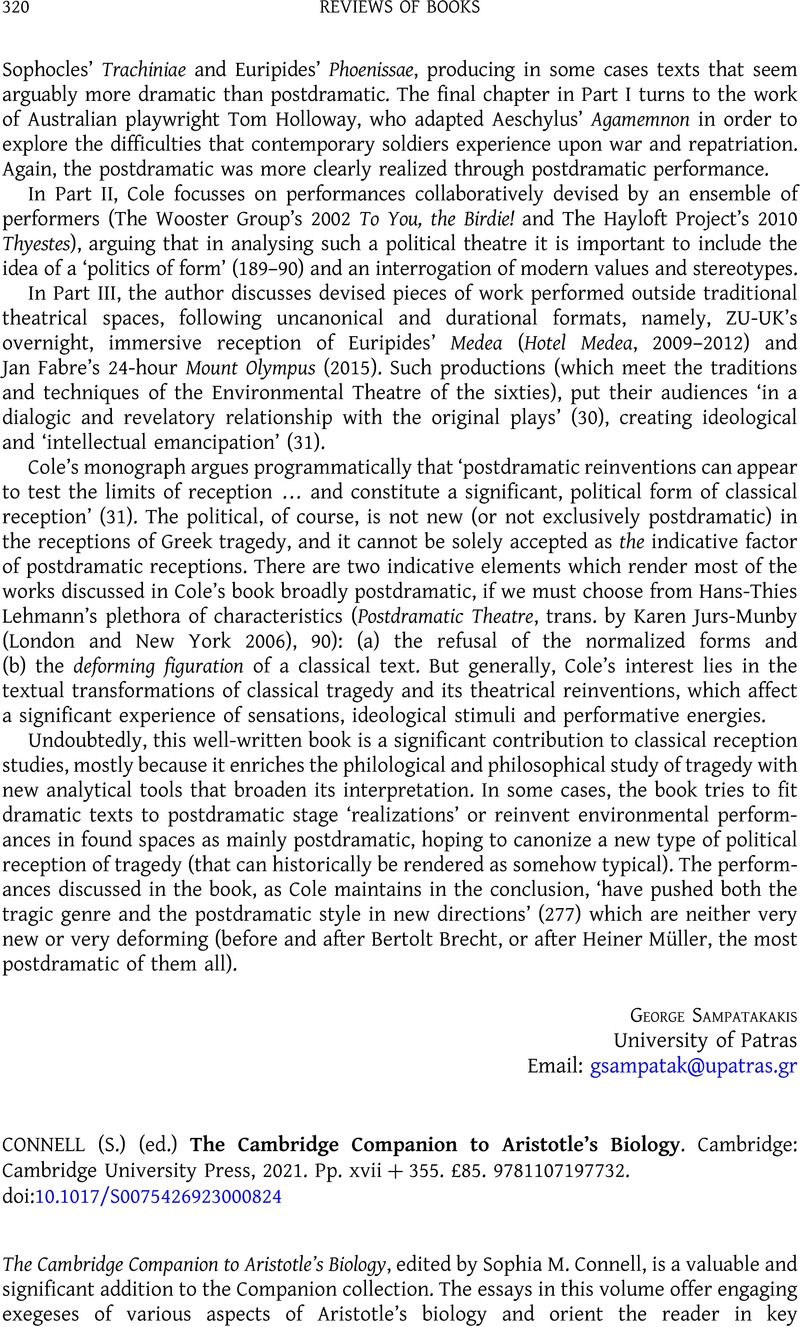No CrossRef data available.
Article contents
(S.) CONNELL (ed.) The Cambridge Companion to Aristotle’s Biology. Cambridge: Cambridge University Press, 2021. Pp. xvii + 355. £85. 9781107197732.
Review products
(S.) CONNELL (ed.) The Cambridge Companion to Aristotle’s Biology. Cambridge: Cambridge University Press, 2021. Pp. xvii + 355. £85. 9781107197732.
Part of:
Philosophy
Published online by Cambridge University Press: 06 November 2023
Abstract
An abstract is not available for this content so a preview has been provided. Please use the Get access link above for information on how to access this content.

- Type
- Reviews of Books: Philosophy
- Information
- Copyright
- © The Author(s), 2023. Published by Cambridge University Press on behalf of the Society for the Promotion of Hellenic Studies


